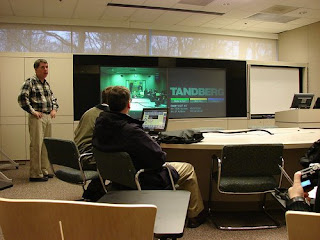
The first international blog that I found was by a teacher from Windsor,Ontario, which is in the southern part of Canada. This blog does not necessarily have class objectives on it, but it have a day-by-day blog that gives the students some insight to various different things. This teacher does make the students post different assignments to the blog though. However, this is not a bad thing for everyone. The teacher has less papers to take home every night; all she has to do is log on to her computer at night now instead of keeping up with and sorting through 80-90 papers a night. The students don't have to carry binders, paper, or any other normal classroom materials to class. All they have to bring is their computer; they can just post all of their lectures to their own blog.
To go to this linkClick Here

This blog at first does not look like a school based blog;however, it is. The school is located in Guia, Canary Islands, Spain, where it is a language school for the students there. In the case of this blog, it is an English language. This blog has everything you would need to help you learn the English language. The way we learn our language to begin with is listening to our Moms and Dads. On this blog it has different videos the students can listen to, to help the students with their pronunciation.
To go to this linkClick Here



